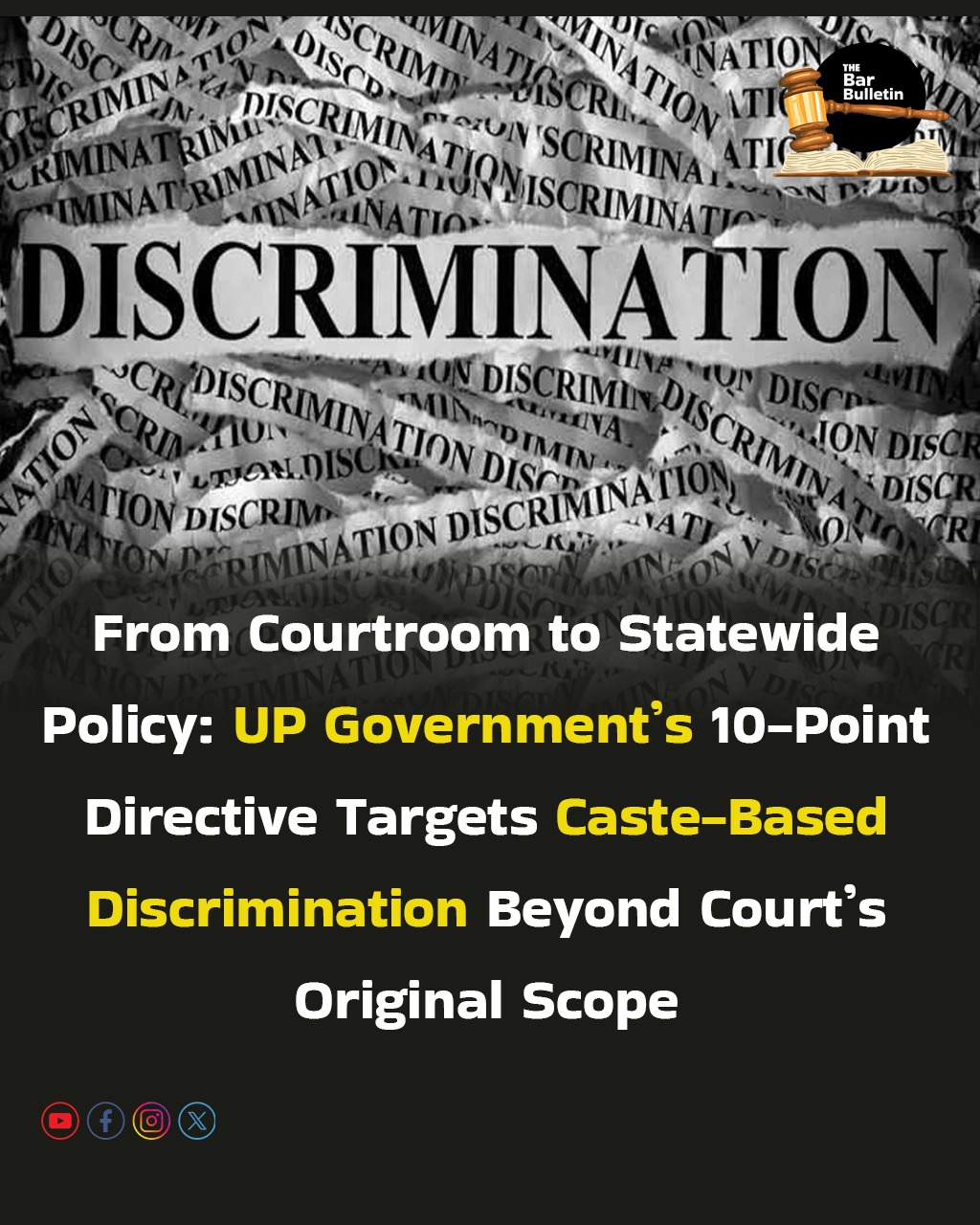On 22 September 2025, the UP government issued a 10-point directive banning caste-based political rallies, ordering the removal of caste identifiers from vehicles and public signs, and instructing that the caste of accused persons no longer be recorded in police documents except where legally mandated (such as cases under the SC/ST (Prevention of Atrocities) Act). The order also proposes strict monitoring of social media for caste-glorifying or derogatory content, with penal action under relevant statutes and the Motor Vehicles Act for violations.
Genesis: The Allahabad HC Ruling in Praveen Chetri vs State of UP & Anr.
The directive traces its origin to the case of Praveen Chetri vs State of UP & Anr.,[1] where the petitioner, accused of illicit liquor smuggling, had approached the Allahabad High Court to have criminal proceedings dropped. The Court, presided by Justice Vinod Diwakar, scrutinized police documents to find castes recorded for accused persons (e.g., ‘Mali’, ‘Pahadi Rajput’, ‘Thakur’, ‘Brahmin’), which he found “regressive” and antagonistic to the vision of a “progressive, transformed, developed, modern, and unified India.”
Justice Diwakar criticized the Director General of Police’s defense that caste records were a long-standing practice useful for identification, calling it a “legal fallacy” given modern identification technologies such as Aadhaar, fingerprints, and mobile cameras. The judgment deeply explored how caste pride manifests in the public sphere, such as through vehicle and property markings, and on social media. The Court rejected the petition but seized the opportunity to highlight casteism embedded not only in society but also within state mechanisms, particularly law enforcement.
The UP Government Directive
Following the judgment, the UP Government issued a 10-point Directive aimed at eradicating caste-based discrimination through administrative and legal measures. Its main components include:
• A complete ban on caste-based political rallies across the state, justified as necessary to prevent social conflict and protect public order and national unity.
• Prohibition of public displays of caste identifiers such as names, slogans, and stickers on vehicles, with violators subject to challans under the Central Motor Vehicles Act.
• Immediate removal of caste-based signboards or public proclamations that glorify any caste or assert “caste territories.”
• A major procedural reform prohibiting the mentioning of an accused person’s caste in police records, including FIRs, recovery memos, and arrest memos. The caste column is to be deleted from the central policing database (Crime and Criminal Tracking Network and Systems portal). Instead, the accused’s mother’s name will be recorded alongside the father’s as an identification aid.
• Exception to caste recording exists only for legally mandated cases such as those under the Scheduled Castes and Scheduled Tribes (Prevention of Atrocities) Act.
• Strict monitoring of social media to curb caste-glorifying or caste-hate content, with directions for “strict action” against offenders under IT and other laws.
Response to the Directive
Justice Diwakar, the author of the original judgement, has acknowledged the government’s steps toward eliminating casteism but also expressed caution that the directive extends beyond the court’s original scope. While endorsing the aim to remove caste mentions from police records and public signage, the judge has pointed out that the government’s ban on caste-based political rallies is a policy decision exceeding the court’s explicit directions. The court’s judgment deprecated caste rallies for their divisiveness but did not legally prohibit them. The government has also gone further in prescribing active surveillance and penalization mechanisms under motor vehicle and information technology laws for offenders.
Justice Diwakar emphasized that genuine social transformation requires dismantling not just visible symbols but also entrenched mental attitudes. He welcomed the government’s efforts but urged that legal measures must be accompanied by broad educational and cultural shifts against caste prejudice, warning against mere symbolic regulation substituting for systemic reform.
Politically, the directives have elicited mixed responses. Opposition leaders like Akhilesh Yadav regard the orders as well-intentioned but insufficient to dismantle millennia of caste discrimination, emphasizing the need for deeper attitude change.
Further, several political parties view the rally ban as a move that disproportionately curtails political mobilization among historically marginalized communities, with particular implications for parties whose core support bases are defined around caste solidarities.
Legally, the directive raises issues concerning the state’s authority to curtail political assembly and freedom of speech, as caste-based identities remain constitutionally recognized in protective frameworks. Whether the rally ban withstands judicial scrutiny for proportionality and rights balance remains open. Moreover, administrative challenges loom over enforcing broad prohibitions, monitoring digital content, and distinguishing lawful from unlawful expressions.
Appearances:
Counsel for Applicant(s): Prashant Sharma, Surendra Pratap Singh
[1] 2025:AHC:165563



